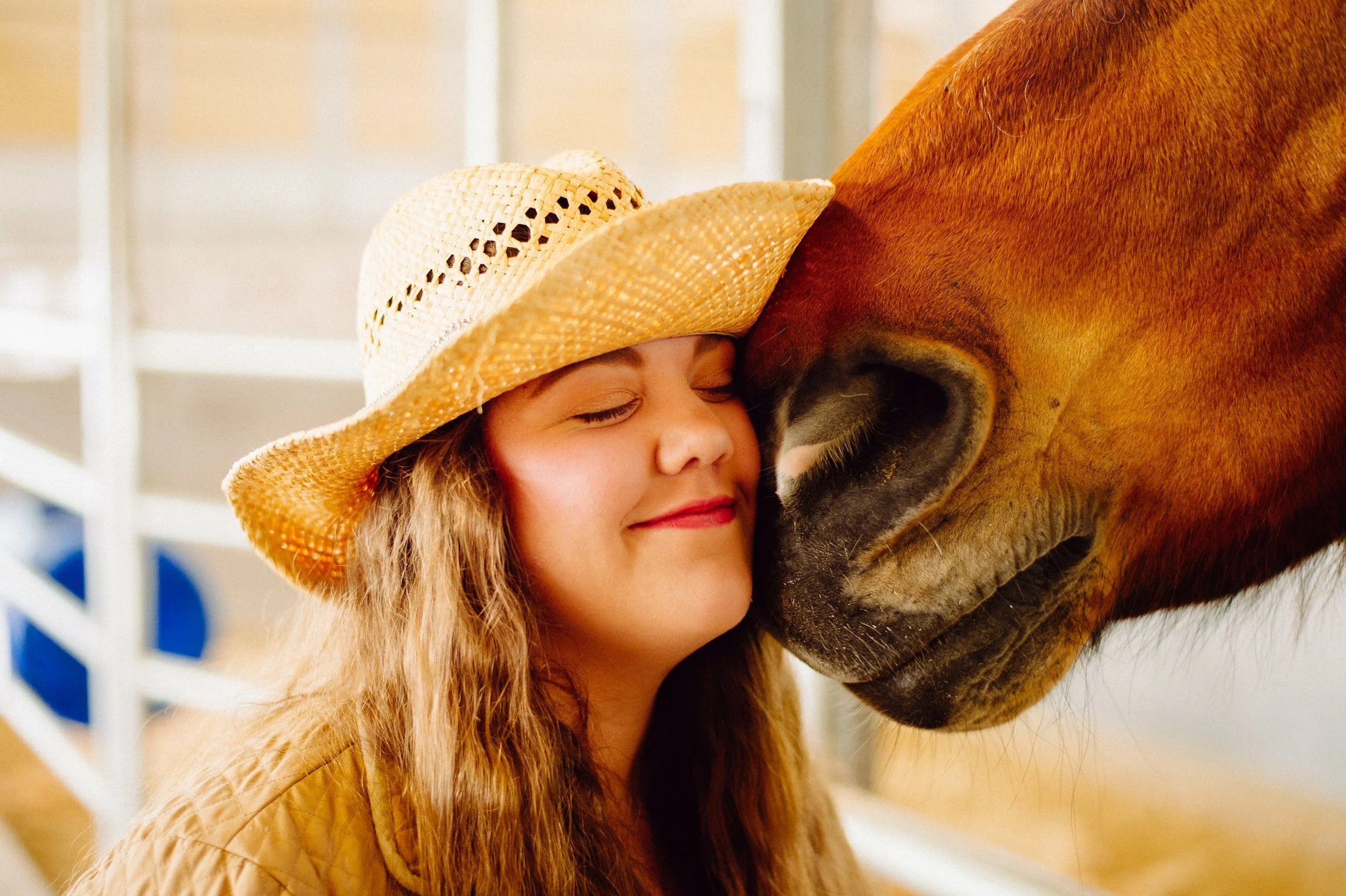What are the Benefits of Equine Therapy
Build Trust and Enhance Communication
The first step for an Equine Assisted Therapy participant is to trust the horse, the therapist, and themselves. This is a profound step towards growth in interpersonal relationships and healing. Learning to trust an animal such as a horse is very powerful in the development and restoration of trust.
Through working with horses, people recognize their patterns of interacting with others. Horses do not speak, but they are excellent communicators. Learning to understand horse behavior can help people learn the way their behavior impacts others.
Reduce anxiety and Depression
Since horses are vigilant and sensitive to behavior and emotions, they can sense danger and respond with a heightened awareness, which typically leads to a change in their behavior and possible attempts to get away. Clients who struggle with anxiety can relate to this ability to sense danger cues and respond in a heightened way.
Address Assertiveness Issues
Horses look for leadership. You can’t force them into cooperation. Learning to be less passive by stepping up and becoming a leader is essential when working with horses. At the same time, they can sense when a person is too aggressive. They will directly react to this scenario by becoming restless, for example.
Learn Mindfulness
Horses can teach mindfulness, which can help you observe your momentary thoughts, feelings, perceptions, and sensations. This mindfulness helps you to tolerate stress, as you are not reacting to these fleeting emotions.
Learn Impulse Control and EMotional Regulation
Equine Therapy can assist people who struggle with impulse control and emotional regulation. The need to communicate with a horse calmly promotes emotional awareness, emotion regulation, self-control, and impulse control. It’s effective in reducing irritability, agitation, and impulsivity. Equine-assisted therapy increases cooperation, emotional regulation, capacity for delay, and behavioral control.
Heal from Trauma
Most of the exchange between horse and human is nonverbal, which is especially potent for individuals who have experienced traumatic events that they are not able to (or choose not to) express in words. For many clients, developing a relationship with a horse is the first step in re-developing positive relationships with friends and loved ones.

